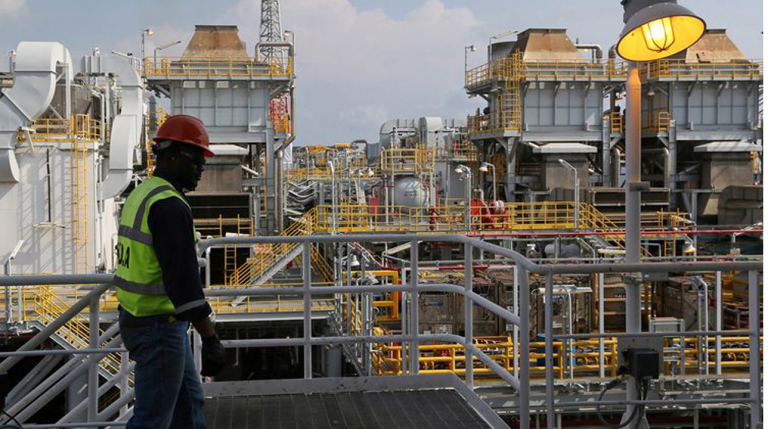
The Russia-Ukraine war has forced the US and its allies to seek alternatives to their energy supply. The war which started in February, created a global energy crisis that shot gas and other commodities’ prices up, stoking inflation across countries.
The global economic crisis was triggered by a series of US-led sanctions leveled against Russia in the wake of its invasion of Ukraine. The Kremlin’s attempt at retaliation, which has been largely tied to cutting off oil supply to many countries, has triggered a massive push for alternatives, particularly in Europe.
Thus, the European Union (EU) delegation to Nigeria and ECOWAS said on Friday that it would replace the gas from Russia with Nigeria gas.
Register for Tekedia Mini-MBA edition 19 (Feb 9 – May 2, 2026): big discounts for early bird.
Tekedia AI in Business Masterclass opens registrations.
Join Tekedia Capital Syndicate and co-invest in great global startups.
Register for Tekedia AI Lab: From Technical Design to Deployment (next edition begins Jan 24 2026).
The EU’s decision to seek out Nigeria as an alternative supplier of gas was disclosed by the Deputy Director-General Department for (Energy), European Commission in Brussels, Matthew Baldwin, at a news conference on Friday in Abuja.
NAN reports that Baldwin will be meeting with top government officials in Nigeria and private sector players, including key stakeholders in the country’s energy sector.
The European Union has stood by the United States against Russia as it pounds Ukraine. Being their sole supplier of energy, the Kremlin has threatened to sever its energy supply – and the threat is becoming very imminent.
The EU’s executive body had urged member states to slash their gas consumption by 15% to avoid an energy crisis in case Russia cuts off supply this winter. But its primary goal is to see that the bloc is weaned off its dependence on Russia energy.
“In summary, I am on a mission from Europe to try to deliver Liquefied Natural Gas (LNG) today in the context of NLG partnership tomorrow with Nigeria.
“Europe is in a tight spot in relations to gas, following the Russian invasion of Ukraine and the instability in our gas market and the threat of cutting off supply altogether.
“So, we have launched the energy platform task force and the primary goal is to reach out to our reliable partners such as Nigeria to replace the gas from Russia with gas from reliable partners,” Baldwin said.
He had earlier this week disclosed that the EU has launched a gas demand reduction plan and is looking to reduce demand of gas by 15% to manage the demand aspect of the equation.
“To be clear, we need to manage the supply side and that’s why we want to expand what is currently at 14% shares of our total LNG import from Nigeria and we want it to go up.
“Our gas percentage was 60 per cent but now we want to go,” he said.
He added that Nigerian products had extraordinary potentials and that was why the EU wanted to expand the short term delivery.
The Deputy Director-General said that the EU hopes to kickstart the partnership by the end of August this year, which would create a long term partnership with Nigeria.
The report quoted Samuela Isopi, the EU delegation to Nigeria and ECOWAS, as saying that the bloc was doing its part in contributing to the energy sector by collaborating with Nigeria.
She said the EU’s current contribution stands at 400 million euros, and remains Nigeria’s biggest trading partner accounting for over 20% of Nigerian trade with the world.
The energy partnership is expected to increase EU-Nigeria trade volume which stood at 28.7 billion euros in 2021, with a trade balance of 6.4 billion euros in favor of Nigeria.
However, while the partnership bears a huge economic potential, Nigeria’s ability to live up to EU’s potential energy demand is under serious question.
Nigeria’s oil output has been spiraling downwards even in the wake of the oil windfall orchestrated by the Ukraine crisis.
Nigeria’s oil production has been losing its place in the Organization of Petroleum Exporting Countries (OPEC)’s ranking. It dropped Year-on-Year, YoY, by 14.3% to 1.4 million barrels per day, mbpd in the first half (January – June) 2022, from 1.6 mbpd in the corresponding period of 2021, according to the Oil Production Status Report of the Nigerian Upstream Petroleum Regulatory Commission, NUPRC.
The oil output also dropped Month-on-Month, MoM, by 23% to 1.3 mbpd in June 2022, from 1.7 mbpd, recorded in the preceding month, May 2022.
Against this backdrop, Nigeria has been failing to meet its OPEC’s quota of 1.826 mbpd.



